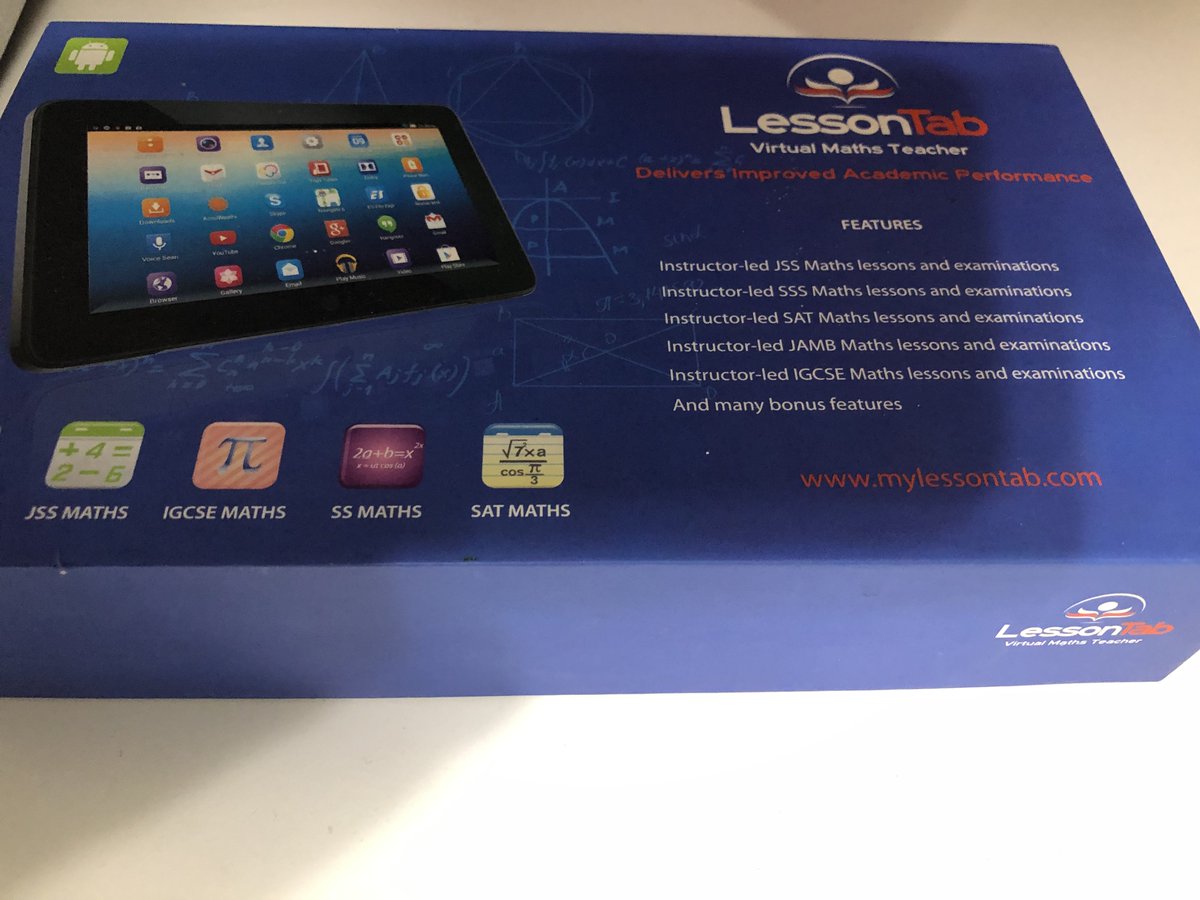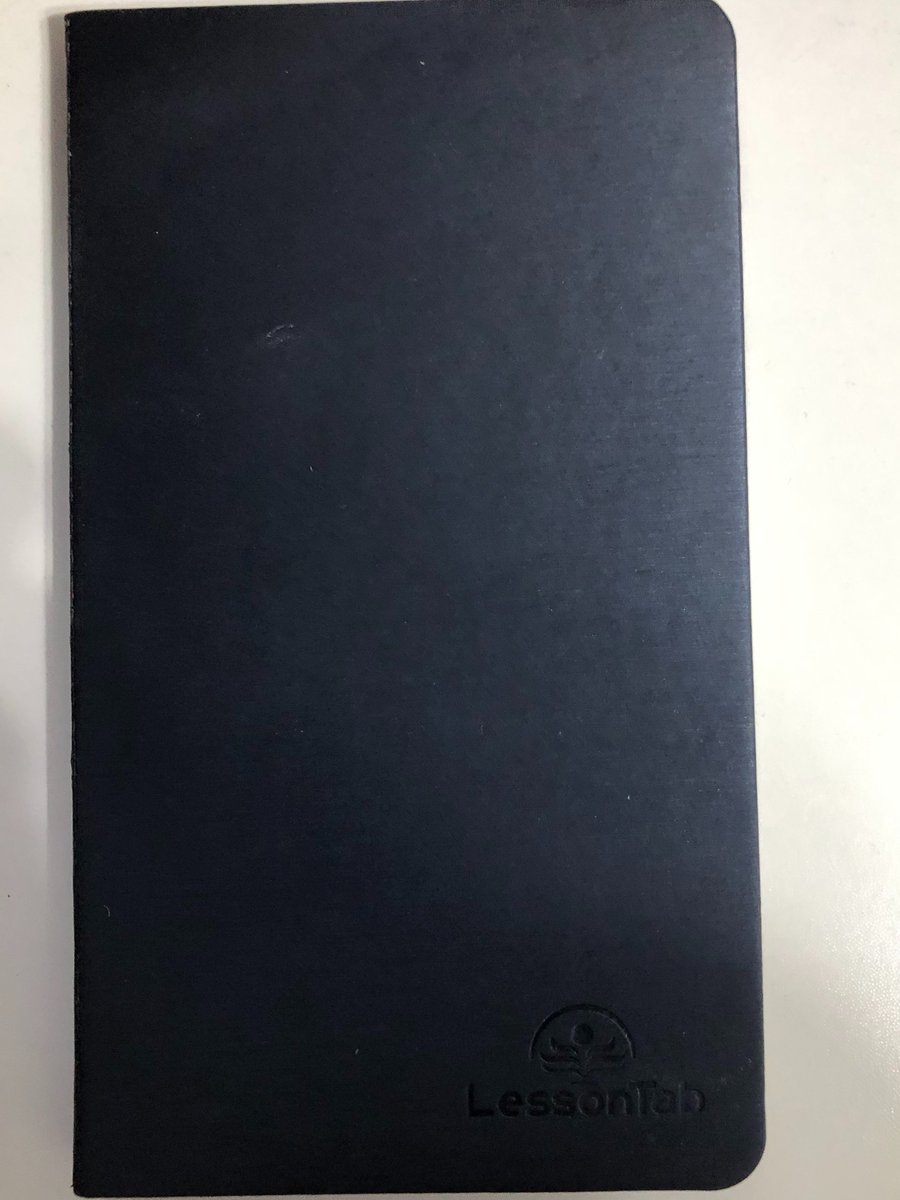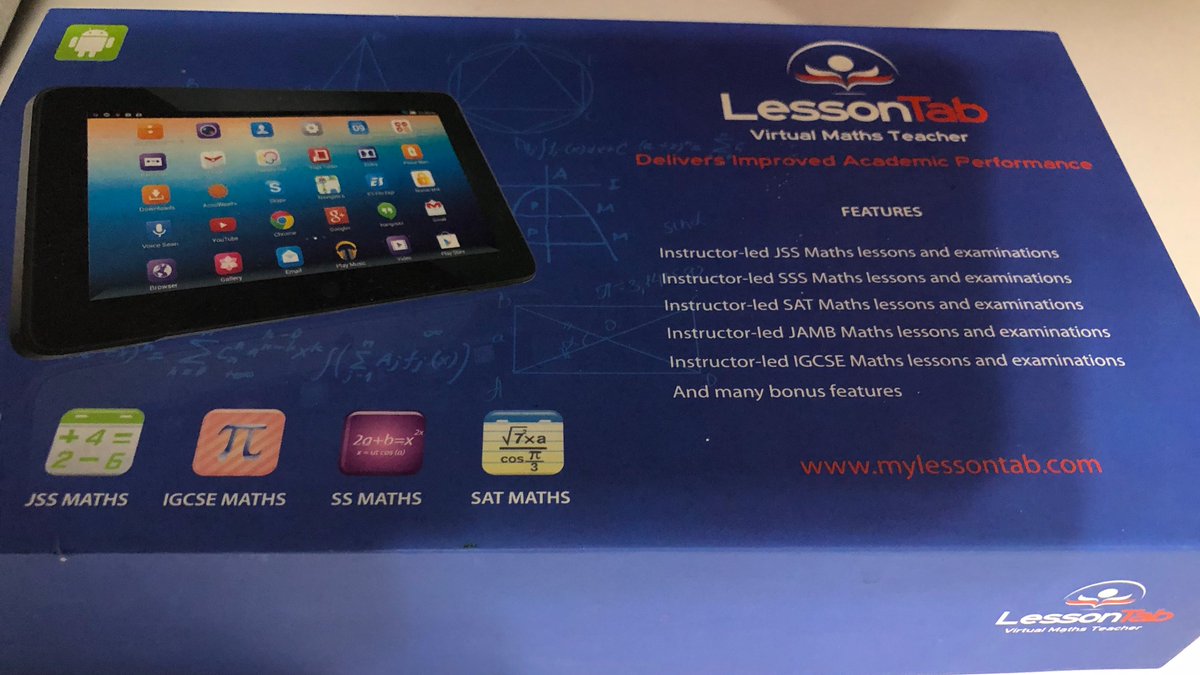
My partner and I met in Atlanta.
We moved to Lagos, Nigeria to build a startup that would provide virtual education content to students across Africa.
LessonTab was born on October 1, 2011.

We moved to Lagos, Nigeria to build a startup that would provide virtual education content to students across Africa.
LessonTab was born on October 1, 2011.


We hired a bunch of teachers, recorded hours of Maths, English Language, Science, and Social Studies lessons, and started trying to sell the idea of virtual lesson teachers to parents.
It was a new concept so we had to do a lot of demonstrations.
It was a new concept so we had to do a lot of demonstrations.
The market initially accepted the product. We sold several copies and started trying to expand the business.
Unfortunately, the startup folded up in 2012.
Why?
Unfortunately, the startup folded up in 2012.
Why?
1. Broadband.
In 2011, broadband penetration in our target market (Nigeria) was low so we had to build an operating system (LessonTab), slapped it on a generic android tablet, encrypted the content, and created a seamless hardware + software + content product.
Cost, cost, cost.
In 2011, broadband penetration in our target market (Nigeria) was low so we had to build an operating system (LessonTab), slapped it on a generic android tablet, encrypted the content, and created a seamless hardware + software + content product.
Cost, cost, cost.
2. Ecosystem:
To make LessonTab work as a downloadable lesson (our plan), we needed a payment gateway, remote working capability for teachers, fast broadband, SaaS-savvy customers etc.
The ecosystem basically didn't exist to make it work in 2011.
To make LessonTab work as a downloadable lesson (our plan), we needed a payment gateway, remote working capability for teachers, fast broadband, SaaS-savvy customers etc.
The ecosystem basically didn't exist to make it work in 2011.
3. SaaS model.
The beauty of Software as a Service (SaaS) is that you can spend a lot of money to build a product once and charge customers fractional amounts to use it on a monthly basis.
Think Netflix - $10 subcription X 750m people.
We couldn't do that in 2011's Nigeria.
The beauty of Software as a Service (SaaS) is that you can spend a lot of money to build a product once and charge customers fractional amounts to use it on a monthly basis.
Think Netflix - $10 subcription X 750m people.
We couldn't do that in 2011's Nigeria.
3. LessonTab needed a buy now, pay small amounts (monthly) model.
The poor broadband and high data cost in 2011 meant potential users couldn't download the video content without paying an exorbitant sum.
We had to try to sell an expensive combo instead.
The poor broadband and high data cost in 2011 meant potential users couldn't download the video content without paying an exorbitant sum.
We had to try to sell an expensive combo instead.
The biggest lesson IMO is that it's difficult to build a startup without a set of complementary systems - VCs, broadband, payment gateways etc.
San Francisco, for instance, is a horrible place to live but the ecosystem is great so it remains the Mecca for startups.
San Francisco, for instance, is a horrible place to live but the ecosystem is great so it remains the Mecca for startups.
After LessonTab failed, my partner moved back to Atlanta to work for IBM. I stayed on in Africa to build a few other products.
LessonTab remains our biggest failure. We spent a lot of money on it and created a great product.
Fortunately, we have both achieved other successes.
LessonTab remains our biggest failure. We spent a lot of money on it and created a great product.
Fortunately, we have both achieved other successes.
I think the time is ripe for a LessonTab reboot.
Unfortunately, I am too busy right now to build it.
But I will be glad to help anyone building a virtual education startup for Africa.
The continent needs it.
Unfortunately, I am too busy right now to build it.
But I will be glad to help anyone building a virtual education startup for Africa.
The continent needs it.
We were 10 years too early.
Timing matters.
Timing matters.
I am now building @Overwoodng, which provides safe investments for Africans starting with Nigerians. It is growing 25% M-on-M.
It solves the dual problem of access and fund safety with a FinTech proposition.
Good timing is a crucial.
Overwood.ng
It solves the dual problem of access and fund safety with a FinTech proposition.
Good timing is a crucial.
Overwood.ng
• • •
Missing some Tweet in this thread? You can try to
force a refresh






